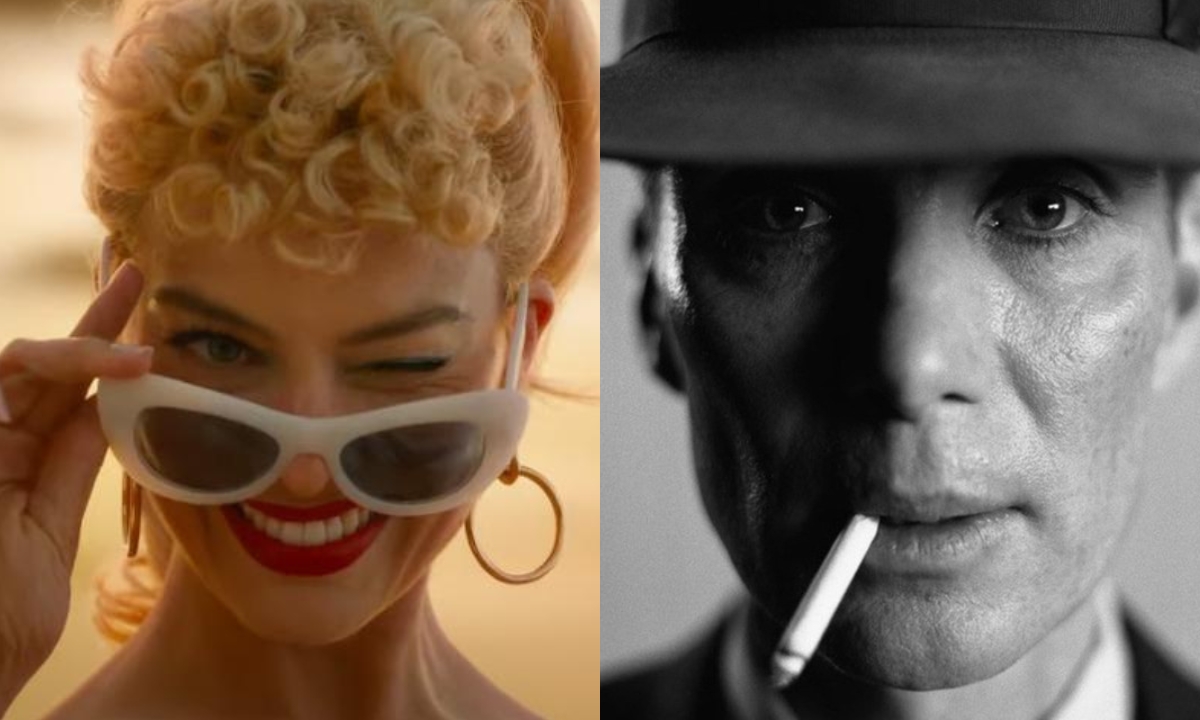Warner Bros. Japan Apologizes For the US Barbie’s Official Social Accounts Engaging in Barbenheimer Memes

Barbenheimer, the viral meme movement inspired by the same-day release of Greta Gerwig’s Barbie and Christopher Nolan’s Oppenheimer, is a cultural phenomenon. Most of the memes were, of course, excellent fun. Who could argue with the brilliant costume changes? But Barbenheimer hit quite differently for the Japanese audience.
Some of the Barbenheimer memes made light of the A-bomb, which Oppenheimer’s Manhattan Project is directly responsible for and which the American military proceeded to drop on the Japanese cities of Hiroshima and Nagasaki. Some posts even used the A-bomb itself as a gag. There’s even an instance where the official Barbie Twitter/X account commented on a post of Barbenheimer fan art depicting Barbie and Oppenheimer in front of a nuclear blast with, “It’s going to be a summer to remember (kissy face emoji, heart emoji).” This the people of Japan—the only country to date where a nuclear bomb has been dropped, not once but twice—did not like. In response, #NoBarbenheimer began trending in Japan this weekend.
And so, Warner Bros Japan released an official public apology on their socials ahead of Barbie‘s August 11 Japanese release. Gizmodo provides a partial translation: “We find the reaction to this fan-driven movement from the official American account for the movie Barbie to be extremely regrettable … We apologize to those offended by these inconsiderate actions.”
To be clear: Japanese audiences are not primarily angry with fans. They’re angry that an official U.S. studio’s account made light of the A-bomb. What’s bizarre and cringey here is that Warner Bros Japan, a related-but-separate studio and entity, is apologizing for their U.S. counterpart. They beseech their counterparts at the end of the statement, “We take this very seriously and are asking the American head office to take appropriate action.” Warner Bros U.S. has yet to respond.
The reality of the A-bomb
Additionally, a petition from Japanese Twitter/X users has gotten additional context added to the Barbie account’s tweet. The context notes that “the damage caused by the atomic bombs is that mass destruction and mass murder occurred instantaneously and indiscriminately.”
Would that it was even that simple. What makes the atomic bomb so nauseating, so inhumanly cruel, is that it wasn’t just the blast that killed people. The after-effects were so widespread and horrendous that the true death count remains impossible to calculate. As with the “downwind” effects from the tests in New Mexico (which Oppenheimer does not address), the radioactivity lingering in Hiroshima and Nagasaki caused cancer and premature death for years.
Did you know that, following the blast, a black rain fell upon Hiroshima which was made of ash, radioactive fallout, and water? And in the aftermath of the blast, people were so parched that they drank it, which caused severe radiation burns and gruesomely swelled and discolored people’s tongues and mouths.
I’ve been to the Hiroshima Peace Memorial Museum, which I only mention because it’s still quite vivid in my mind as I grapple with my feelings about Oppenheimer. Japan certainly made many actions during World War II which were morally reprehensible as well. But the museum does an immaculate job of not dwelling on questions of “who” and “why.” The experience simply illustrates the devastating effects of a nuclear bomb explosion, in the immediate aftermath and in the hours, days, months, and years that follow. In the final stretch of the main exhibit, I had to rush out, find a bench, and cry. There are only so many stories of human beings getting sick and dying that one can possibly endure.
The Japanese response
Overall, there’s shock and disbelief among Japanese social media that a popular movement could downplay the seriousness of the A-bomb this much. Japanese audiences aren’t thrilled about the A-bomb-centric Barbenheimer memes. But they’re primarily upset with Warner Bros U.S. for engaging with and condoning these bad-taste jokes in an official capacity.
Japan-based professor Jeffrey J. Hall provided a few translations of Japanese netizens’ reactions. Many are from people who have family who witnessed the bomb. There’s also uncertainty about how to feel about Oppenheimer itself. While Barbie‘s out in a few weeks, Oppenheimer currently has no Japanese release date.
This is, of course, not to say that everyone in Japan feels this way. Or that the #NoBarbenheimer movement reflects a larger attitude toward Americans. The majority of people in Japan—even a surprisingly number of the elderly—don’t hold a grudge against America or Americans. When I played a show with my band in Hiroshima, the person most uncomfortable about America’s history in the city was clearly me. Hiroshima is a beautiful, vibrant city. And they have really delicious okonomiyaki—with noodles (if you know, you know).
But while most people may not hold a grudge, that doesn’t translate to a free pass for Americans to make A-bomb jokes en masse. We got carried away, and it’s time to own up and apologize. Barbenheimer was the first big cinematic event since the pandemic. People were excited and giddy. But maybe don’t wear the Barbenheimer shirt with the A-bomb cloud. We can geek out about Barbie and Oppenheimer without making light of the nuclear bomb and its devastating effects.
(featured image: Warner Bros / Universal)
Have a tip we should know? tips@themarysue.com